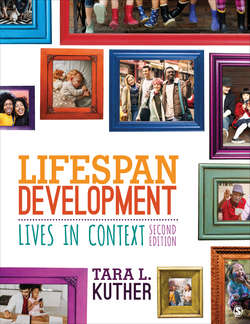Читать книгу Lifespan Development - Tara L. Kuther - Страница 394
На сайте Литреса книга снята с продажи.
Conceptions of Moral, Social, and Personal Issues
ОглавлениеSocial experiences—disputes with siblings over toys, for exampl—help young children develop conceptions about justice and fairness (Killen & Nucci, 1995). As early as 3 years of age, children can differentiate between moral imperatives, which concern people’s rights and welfare, and social conventions, or social customs (Smetana & Braeges, 1990). For example, they judge stealing an apple, a moral violation, more harshly than violating a social convention, such as eating with one’s fingers (Smetana, 1995; Turiel, 1998). In one study, 3- and 4½-year-old children viewed an interchange in which one puppet struggled to achieve a goal, was helped by a second puppet, and was violently hindered by a third puppet. When asked to distribute biscuits, the 4½-year-olds but not 3-year-olds were more likely to give more biscuits to the helper than the hinderer puppet. Most explained the unequal distribution by referring to the helper’s prosocial behavior or the hinderer’s antisocial behavior (Kenward & Dahl, 2011). In addition to moral and conventional issues, between ages 3 and 5, children come to differentiate personal issues, matters of personal choice that do not violate rights, across home and school settings (Turiel & Nucci, 2017). Individuals, including preschoolers, believe that they have control over matters of personal choice, unlike moral issues whose violations are inherently wrong.
